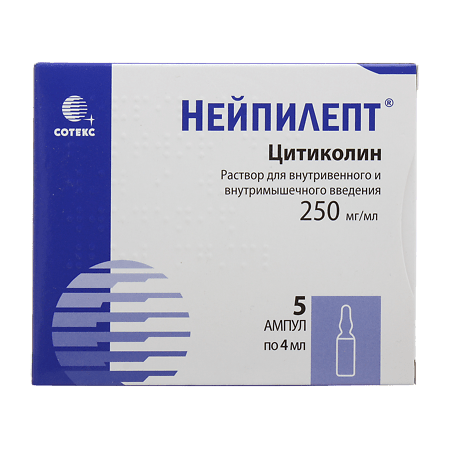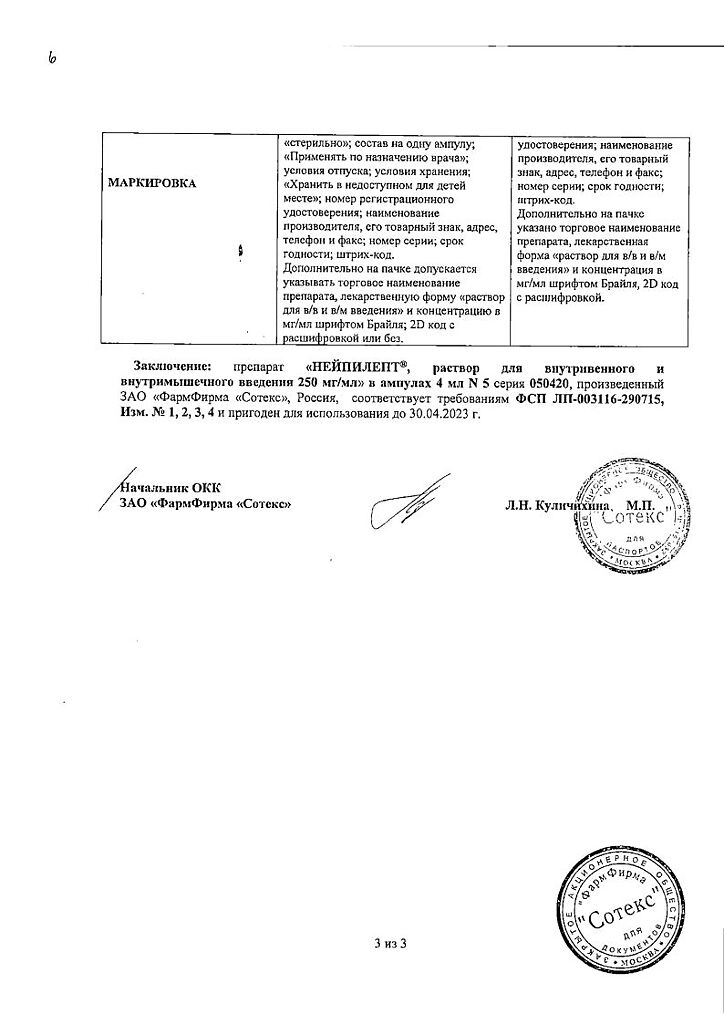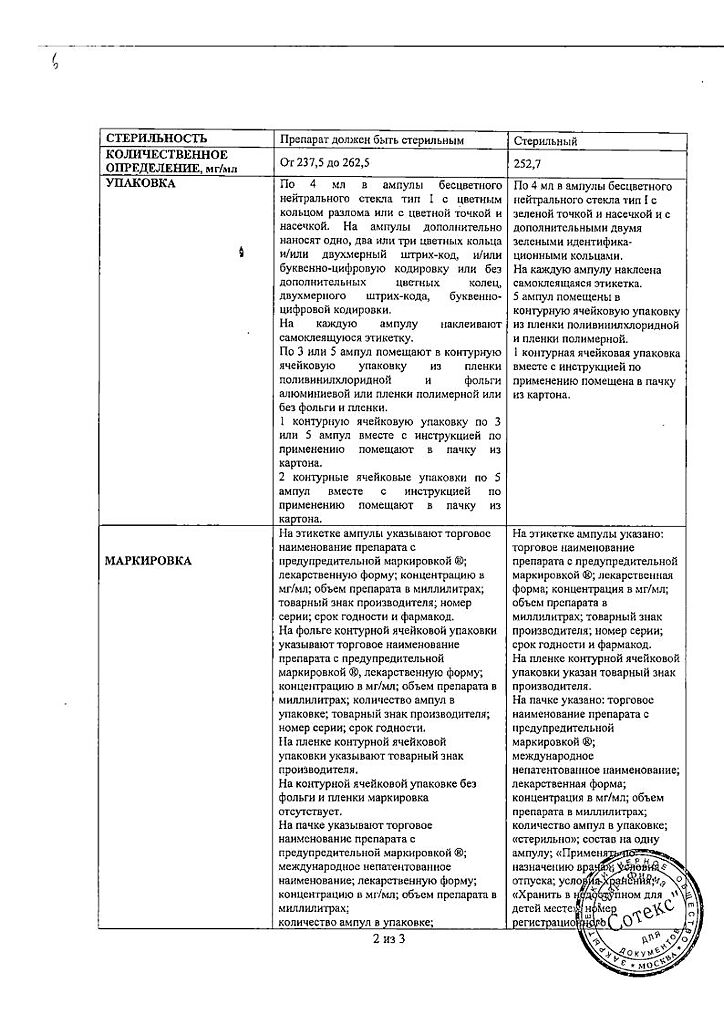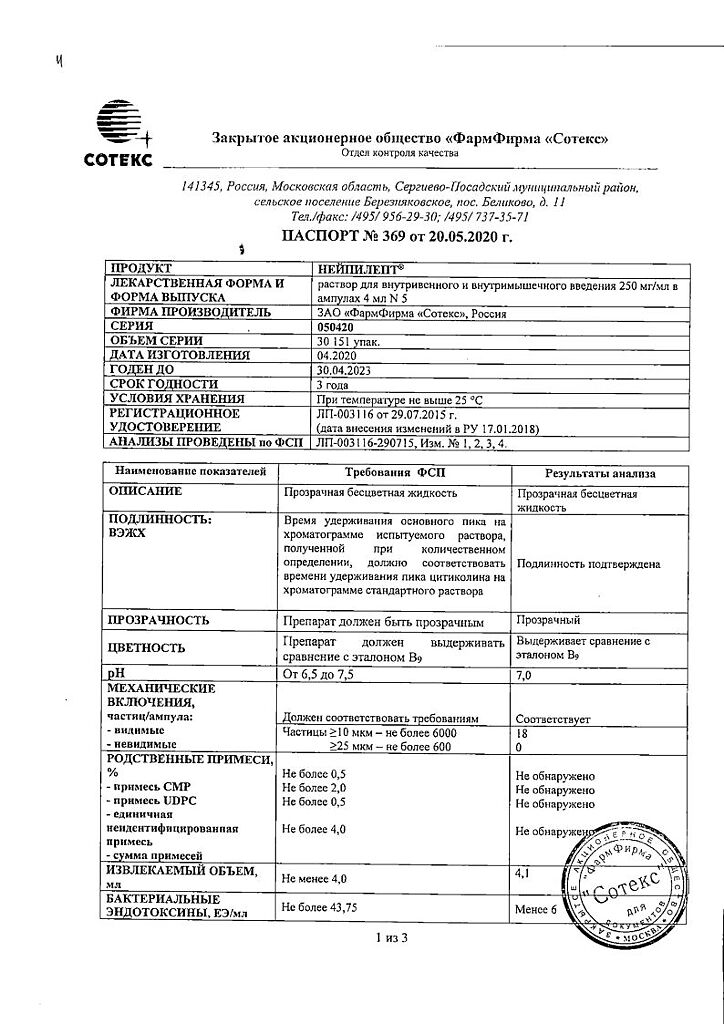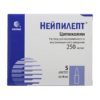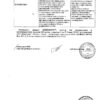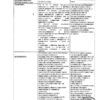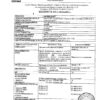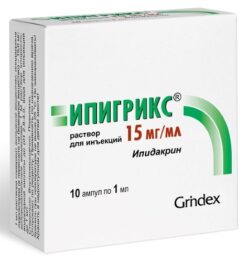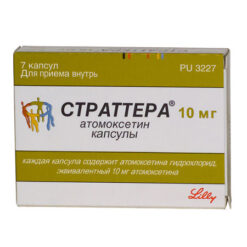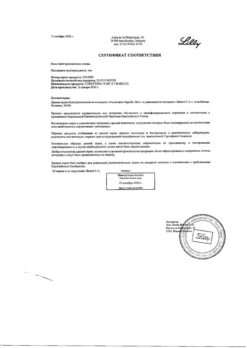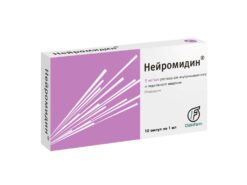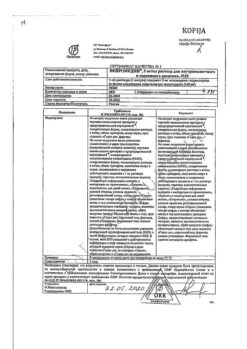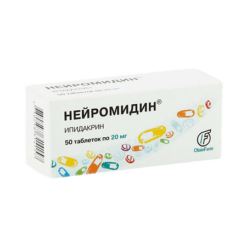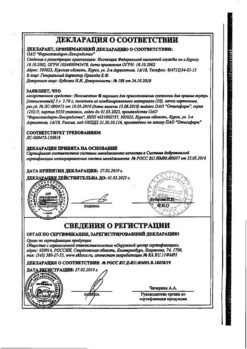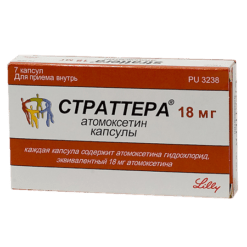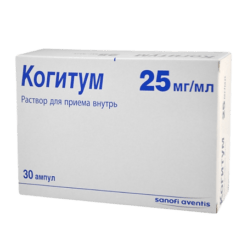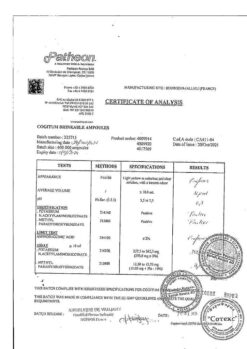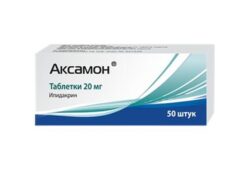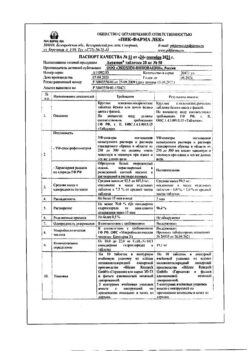No products in the cart.
Neupilept, 250 mg/ml 4 ml 5 pcs
€1.00
Out of stock
(E-mail when Stock is available)
Description
Citicoline is a natural endogenous compound, which is an intermediate metabolite in the synthesis of phosphatidylcholine, one of the main structural components of the cell membrane.
It has a wide range of action – it promotes restoration of damaged cell membranes, inhibits the action of phospholipases, prevents excessive formation of free radicals and also prevents cell death by acting on the mechanisms of apoptosis.
In the acute period of stroke citicoline reduces the volume of brain tissue damage, improves cholinergic transmission. In CHT it reduces the duration of post-traumatic coma and severity of neurological symptoms, and also helps to decrease the duration of recovery period.
In chronic cerebral hypoxia citicoline is effective in treating cognitive disorders such as memory impairment, lack of initiative, difficulties in performing daily activities and self-care. It increases the level of attention and consciousness and reduces the manifestation of amnesia.
Cyticolin is effective in the treatment of sensory and motor neurological disorders of degenerative and vascular etiology.
Metabolism
After IV administration, citicoline is rapidly hydrolyzed to choline and citidine and is delivered to various tissues of the body.
Distribution
After administration, cicoline is widely distributed in brain structures with rapid incorporation of the choline fraction into structural phospholipids and the citidine fraction into citidine nucleotides and nucleic acids. Upon reaching the brain, citicoline is incorporated into cellular, cytoplasmic and mitochondrial membranes, taking part in the construction of the phospholipid fraction.
Elimination
Only a small amount of the dose is excreted by the kidneys and through the intestine
Indications
Indications
Acute period of ischemic stroke (as part of complex therapy);
recovery period of ischemic and hemorrhagic strokes;
traumatic brain injury, acute (as part of complex therapy) and recovery period;
cognitive and behavioral disorders in degenerative and vascular diseases of the brain.
Pharmacological effect
Pharmacological effect
Citicoline is a natural endogenous compound that is an intermediate metabolite in the synthesis of phosphatidylcholine, one of the main structural components of the cell membrane.
It has a wide spectrum of action – it promotes the restoration of damaged cell membranes, inhibits the action of phospholipases, prevents the excessive formation of free radicals, and also prevents cell death by affecting the mechanisms of apoptosis.
In the acute period of stroke, citicoline reduces the volume of brain tissue damage and improves cholinergic transmission. In case of TBI, it reduces the duration of post-traumatic coma and the severity of neurological symptoms, in addition, it helps to reduce the duration of the recovery period.
In chronic cerebral hypoxia, citicoline is effective in the treatment of cognitive disorders such as memory impairment, lack of initiative, and difficulties in performing daily activities and self-care. Increases the level of attention and consciousness, and also reduces the manifestation of amnesia.
Citicoline is effective in the treatment of sensory and motor neurological disorders of degenerative and vascular etiology.
Metabolism
After intravenous administration, citicoline is quickly hydrolyzed into choline and cytidine and delivered to various tissues of the body.
Distribution
After administration, citicoline is widely distributed in brain structures with the rapid incorporation of the choline fraction into structural phospholipids and the cytidine fraction into cytidine nucleotides and nucleic acids. Having reached the brain, citicoline is integrated into cellular, cytoplasmic and mitochondrial membranes, taking part in the construction of the phospholipid fraction.
Removal
Only a small amount of the dose is excreted by the kidneys and intestines
Special instructions
Special instructions
Neipilept® is administered intravenously (3-5 minutes depending on the dose). When administered intravenously, the infusion rate should be 40-60 drops per minute.
For persistent intracranial hemorrhage, it is recommended not to exceed the dose of Neupilept® 1000 mg/day; the drug is administered intravenously at a rate of 30 drops per minute.
Impact on the ability to drive vehicles and machinery
While using the drug, care should be taken when driving and when engaging in other potentially hazardous activities that require increased concentration and speed of psychomotor reactions.
Active ingredient
Active ingredient
Citicoline
Composition
Composition
Composition (1 ml / 1 amp.):
active substance:
citicoline sodium (in terms of citicoline) 250 mg;
excipients:
hydrochloric acid 1M or sodium hydroxide solution 1M – to pH 6.5-7.5,
water for d/i – up to 4 ml.
Contraindications
Contraindications
Hypersensitivity to any of the components of the drug;
should not be prescribed to patients with severe vagotonia (high tone of the parasympathetic part of the autonomic nervous system);
Due to the lack of sufficient clinical data, it is not recommended for use in children under 18 years of age.
Side Effects
Side Effects
From the nervous system and sensory organs: sleep disturbance, incl. insomnia or drowsiness, increased excitability, fatigue, impaired attention, restlessness, anxiety, headache, dizziness, extrapyramidal disorders (rigidity, hypokinesia, hypersalivation, akathisia, acute dystonia), tardive dyskinesia, neuroleptic malignant syndrome, thermoregulation disorder, seizures, stroke (in predisposed elderly patients), blurredness vision.
From the cardiovascular system and blood (hematopoiesis, hemostasis): orthostatic hypotension, reflex tachycardia, arterial hypertension, neutro- and thrombopenia, thrombocytopenic purpura.
From the gastrointestinal tract: nausea, vomiting, dyspeptic symptoms, abdominal pain, constipation, increased levels of liver transaminases.
From the genitourinary system: dysmenorrhea, amenorrhea, impotence, erectile dysfunction and ejaculation, anorgasmia, decreased libido, priapism, polyuria, urinary incontinence, edema.
Allergic reactions: skin rash, angioedema.
Other: rhinitis, galactorrhea, gynecomastia, weight gain, hypervolemia (due to polydipsia or syndrome of inappropriate ADH secretion), hyperglycemia (in patients with diabetes mellitus).
Interaction
Interaction
Citicoline enhances the effects of levodopa.
Overdose
Overdose
Given the low toxicity of the drug Neupilept®, cases of overdose have not been described.
Manufacturer
Manufacturer
PharmFirma Sotex, Russia
Additional information
| Manufacturer | PharmFirm Sotex, Russia |
|---|---|
| Medication form | solution |
| Brand | PharmFirm Sotex |
Related products
Buy Neupilept, 250 mg/ml 4 ml 5 pcs with delivery to USA, UK, Europe and over 120 other countries.

